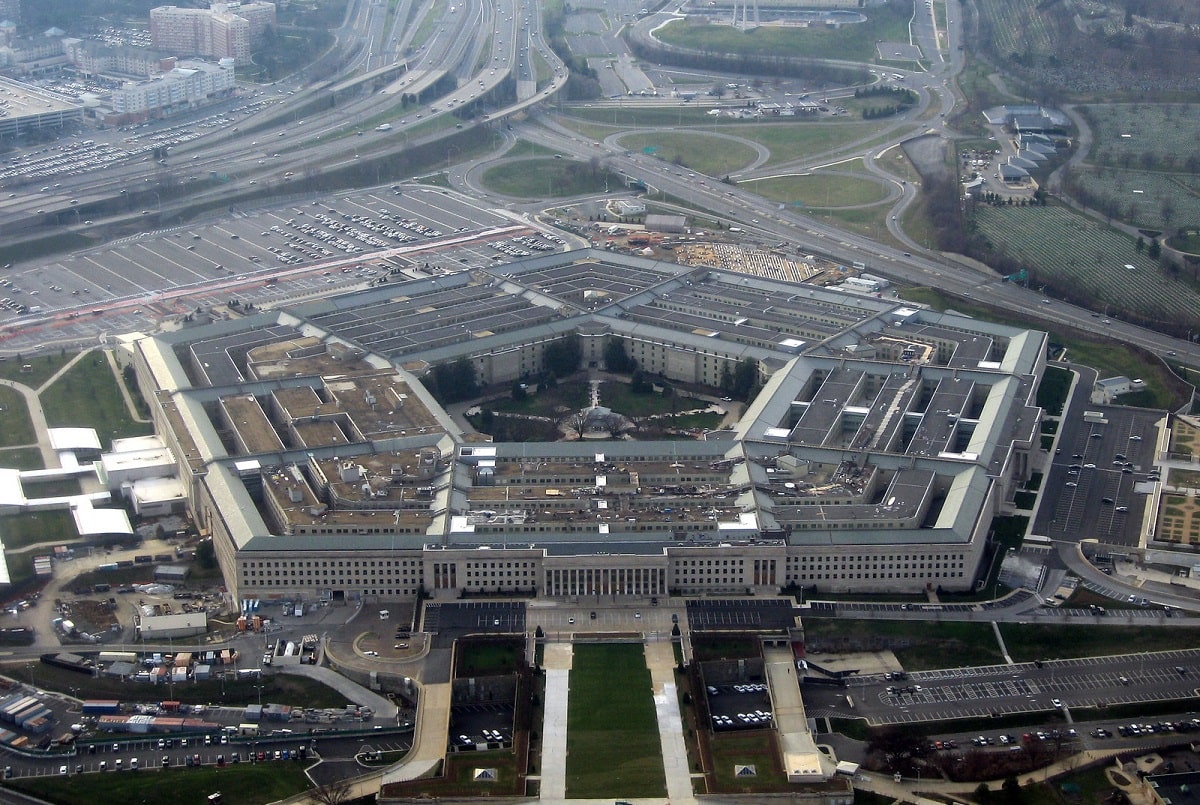Earlier today, Gen. Qamar Javed Bajwa, chief of staff of the Pakistani Army, visited the Pentagon. Secretaries of defense regularly receive senior foreign defense officials, but not every visit is the same. When Ben Wallace, the United Kingdom’s secretary for defense, visited the Pentagon earlier this year, he received full honors. Ukrainian Defense Minister Oleksii Reznikov likewise received an honor cordon. The honors made sense: The United Kingdom by treaty, and Ukraine by inclination, are natural allies of the United States. Brits and Ukrainians have put their lives on the line for their American counterparts. To show their defense leaders such respect was an easy call.
In contrast, when Joseph Aoun, commander of the Lebanese Armed Forces, visits the Pentagon, his reception is decidedly lower key. This too makes sense. While the United States funds and cooperates with the Lebanese Armed Forces, they know that Aoun plays a double game. Commanding the Lebanese military is an important stepping stone for the presidency, and Aoun was loath to crack down on Hezbollah lest he lose their support for his political ambitions. He might say the right things in Washington, but when he feels he needs to, Aoun makes common cause with terrorists.
As we can see from the above examples, there are protocols for expressing approval or chastisement when hosting these dignitaries.
This makes U.S. Secretary of Defense Lloyd Austin’s decision to receive Bajwa with the Pentagon’s highest ceremonial honors even more curious. Bajwa is not responsible for every Pakistani decision during his tenure, but he does represent a Pakistani military establishment that is rotten to the core. In 2011, a U.S. SEAL Team operation killed al Qaeda leader Osama bin Laden in Abbottabad. That town, about 80 miles north of Islamabad, is Pakistan’s equivalent of West Point, and Pakistan’s military leadership certainly knew of bin Laden’s presence there. After all, an active-duty Pakistani Army lieutenant general heads Pakistan’s Inter-Services Intelligence (ISI) agency, and active-duty military officers largely staff it.
Bin Laden’s shelter in Pakistan was the rule rather than the exception. The ISI protects dozens of terrorist leaders, many of whom have American blood on their hands. True, Pakistan sometimes gives the United States actionable intelligence on terrorist leaders, but it does so mostly for transactional purposes.
Bajwa’s greatest insult to the United States, though, is Pakistan’s consistent support for the Taliban. Here, the problem was not only the ISI, but the Pakistani Army itself. Bajwa repeatedly pledged to ousted Afghan President Ashraf Ghani that Pakistan would not allow its soil to be used to attack Afghanistan. And, yet, the Taliban’s final drive in August 2021 represented less the culmination of an indigenous insurgency, and more a Pakistani invasion: Videos and testaments showed the active complicity of many Pakistani soldiers fighting alongside the Taliban. Simply put, Bajwa repeatedly lied, and he shares responsibility for the deaths of hundreds of American soldiers and contractors.
That the Pakistani government continues to thumb its nose at such terrorism concerns only adds insult to injury. So too does the fact that under Bajwa’s watch, Pakistan used advanced F-16 fighter jets provided by the United States to fight a Baluchi insurgency sparked by the corruption and repression of Pakistan’s central government. To top it all off, under Bajwa’s watch, Pakistan has effectively become a vassal of China. There is not a single military secret shared with Pakistan that the Pakistani military does not share with the People’s Liberation Army within hours.
Too often, Biden officials fail to differentiate between adversaries and allies. Perhaps they believe polite diplomacy will overcome deeply felt anti-Americanism, but this is naïve. They may also believe that such questions of protocol are unimportant. This, too, is wrong: Pakistan is clearly using Bajwa’s reception to whitewash its own image. “Honor cordons are generally reserved for the US president, vice president, statutory appointees, general or flag officers of the country’s military. The cordon is also offered to foreign dignitaries occupying positions comparable to these US officials, and for occasions in which such ceremonies promote international goodwill,” Pakistan’s main English-language newspaper explained.
It is one thing to make a mistake. It is quite another to do so in a way that disrespects hundreds of Americans who made the ultimate sacrifice in Afghanistan. Bajwa, because of who he is and what he represents, deserves a reception with all the warmth of a dentist office’s waiting room. To order an honor cordon is a disgrace. Secretary of Defense Lloyd Austin owes Afghanistan war veterans and the American people an explanation.

